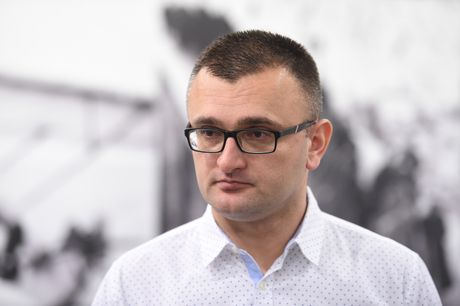Klacar: Ukrainian crisis will not reduce turnout in April 3 elections

CESID Executive Director Bojan Klacar said last night that it is estimated that about 55% of voters will go to polls in the upcoming elections and that the Ukrainian crisis will not dramatically reduce the turnout, adding that political uncertainty and reversal can be expected if more than four million voters turn out, which, he says, rarely happens in Serbia.
Klacar told Tanjug that the turnout in the last elections was 48.89 percent and that part of the opposition boycotted the vote, while the turnout is expected to be around 55 percent this April 3.
He noted that the Ukrainian crisis is creating changes on a daily basis, when it comes to the elections in Serbia, stating that political parties had to change their campaigns, topics and messages, and that the current scenario suits the ruling parties more.
According to him, the reason for that is that there are no radical consequences of the Ukrainian crisis for Serbia, as well as the fact that the emphasis is on stability.
"Topics that were important to the opposition, ecology, fight against corruption, remained in the background. Elections are no longer the first topic for citizens, instead economic and political stability are," said Klacar.
He added that the parties planned campaigns in different circumstances, and that the ruling SNS adapted the best, which is indicated by their campaign slogan "Peace, Stability - Aleksandar Vucic" which he believes was created due to the Ukrainian crisis.
On the other hand, he says, the opposition is still trying to find a way to replace topics that were important to them with some other topics.
Klacar said that the right wing has more candidates in the elections because public opinion in Serbia is more turned to the right and towards a community in which there are many people with conservative and authoritarian feelings.
"Political parties and candidates turn to people who are a majority, if there are more of those who have right-wing feelings, the whole offer turns toward them. In essence, almost the entire political scene is center-right," said Klacar.
Klacar stated that the higher the turnout, the higher the election threshold and that it could happen that a large number of right-wing parties will remain below the threshold.
He added that polls show that abstainers are a diverse and dispersed group, that there is no party toward which those groups are inclined, and that among them are voters of both the government and the opposition.
"If the abstainers come out, it raises the electoral threshold, which means that the SNS, which aims to win in the first round of presidential elections and get 50 percent in parliamentary elections, must win more votes in absolute numbers," said Klacar.
He added that it is certain that four lists will pass the threshold in Belgrade - SNS, SPS, coalition "Moramo" and "Ujedinjena Srbija."
(Telegraf.rs)
Video: Slaven Došlo o mjuziklu "Balkan ekspres": To je priča o malim ljudima koji pokušavaju da prežive
Telegraf.rs zadržava sva prava nad sadržajem. Za preuzimanje sadržaja pogledajte uputstva na stranici Uslovi korišćenja.

